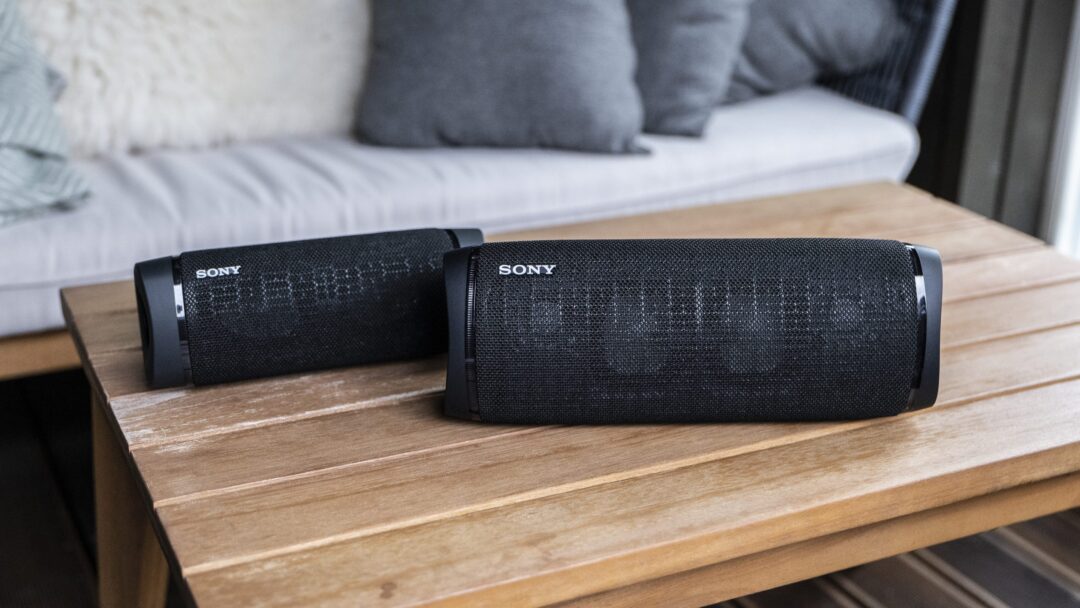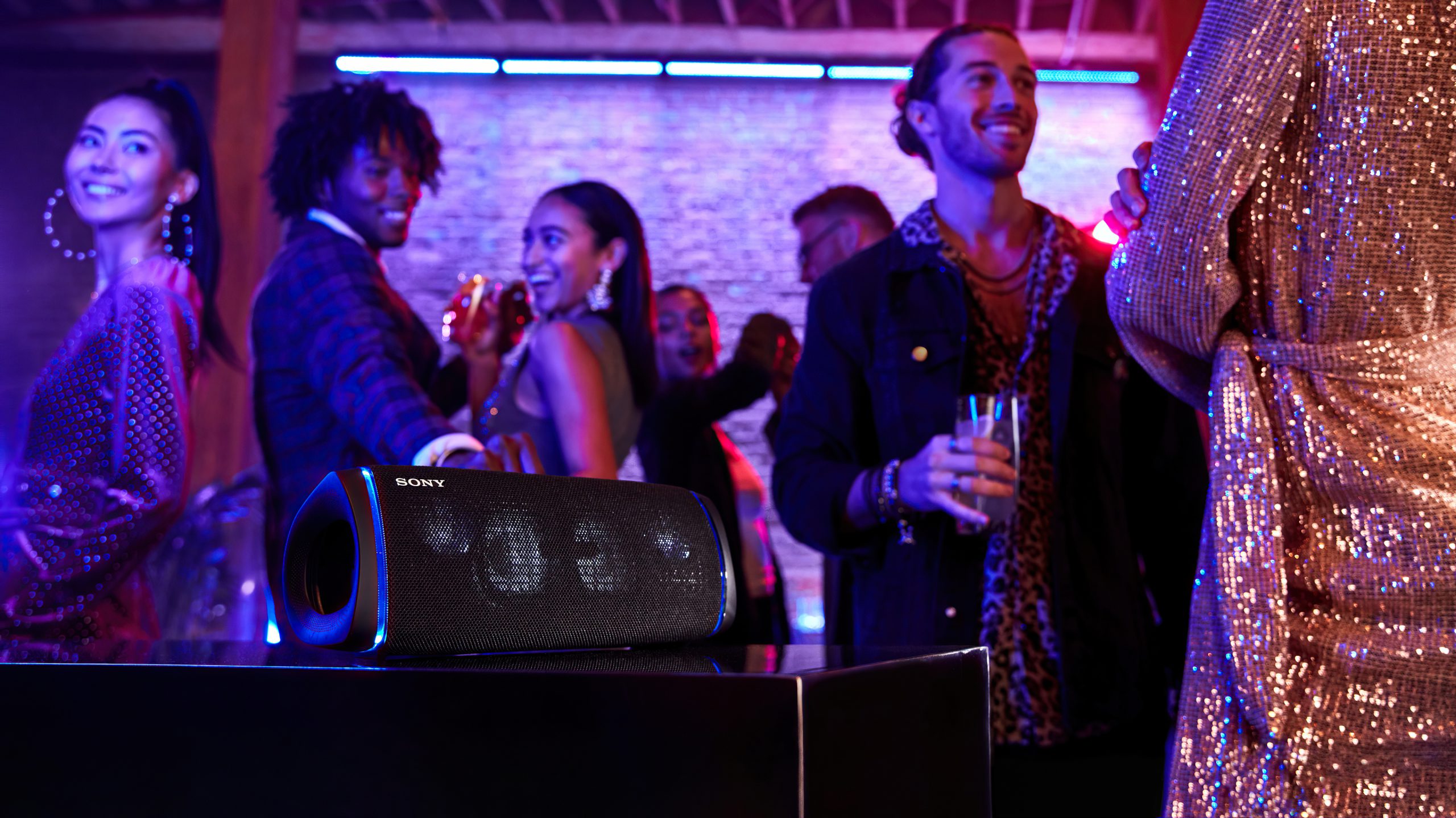Sony has updated its portable Extra Bass speakers. The SRS-XB32 ran just as well with the victory in our group test of portable speakers last autumn, with its long battery life of 24 hours and good sound. But neither it nor its siblings had USB C charging, it is in place in the new series. In addition to a USB port that can charge the mobile phone, which also its predecessors had.
More robust
The new speakers have the same battery life and also seem more robust than their predecessors, which with their soft surface easily got scratched. The new series is upholstered in impregnated fabric, which is more resistant to scratches.
There is still no support for aptX over Bluetooth, but Android users can enjoy Sony’s LDAC codec. This has much higher bandwidth and thus also better sound – close to uncompressed quality.
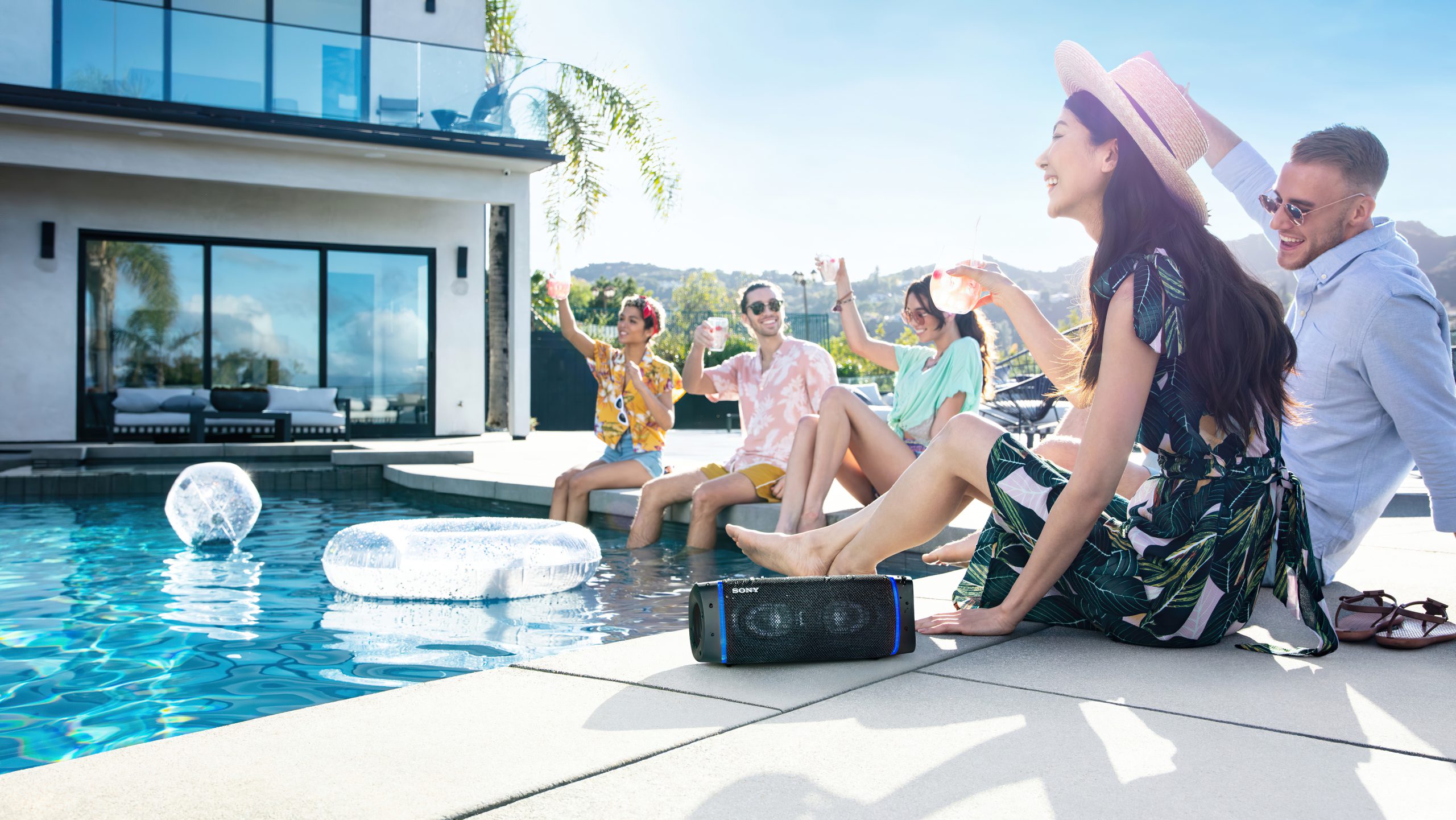
SRS-XB33: The middle of the class
SRS-XB33 is the Extra Bass family’s middle family member, there is also a smaller XB23. The XB33 is not among the smallest portable speakers, but it fits nicely in a backpack and does not take up much space in your hand luggage.
The speaker elements on the SRS-XB33 are so-called full-tone elements, which means that both the entire frequency range is reproduced by the same elements. In addition to the two front-facing full-tone elements, there are a pair of passive radiator basses on each side of the cabinet. On the SRS-XB32, these sat on the back. Whether it has any sonic purpose remains to be seen.
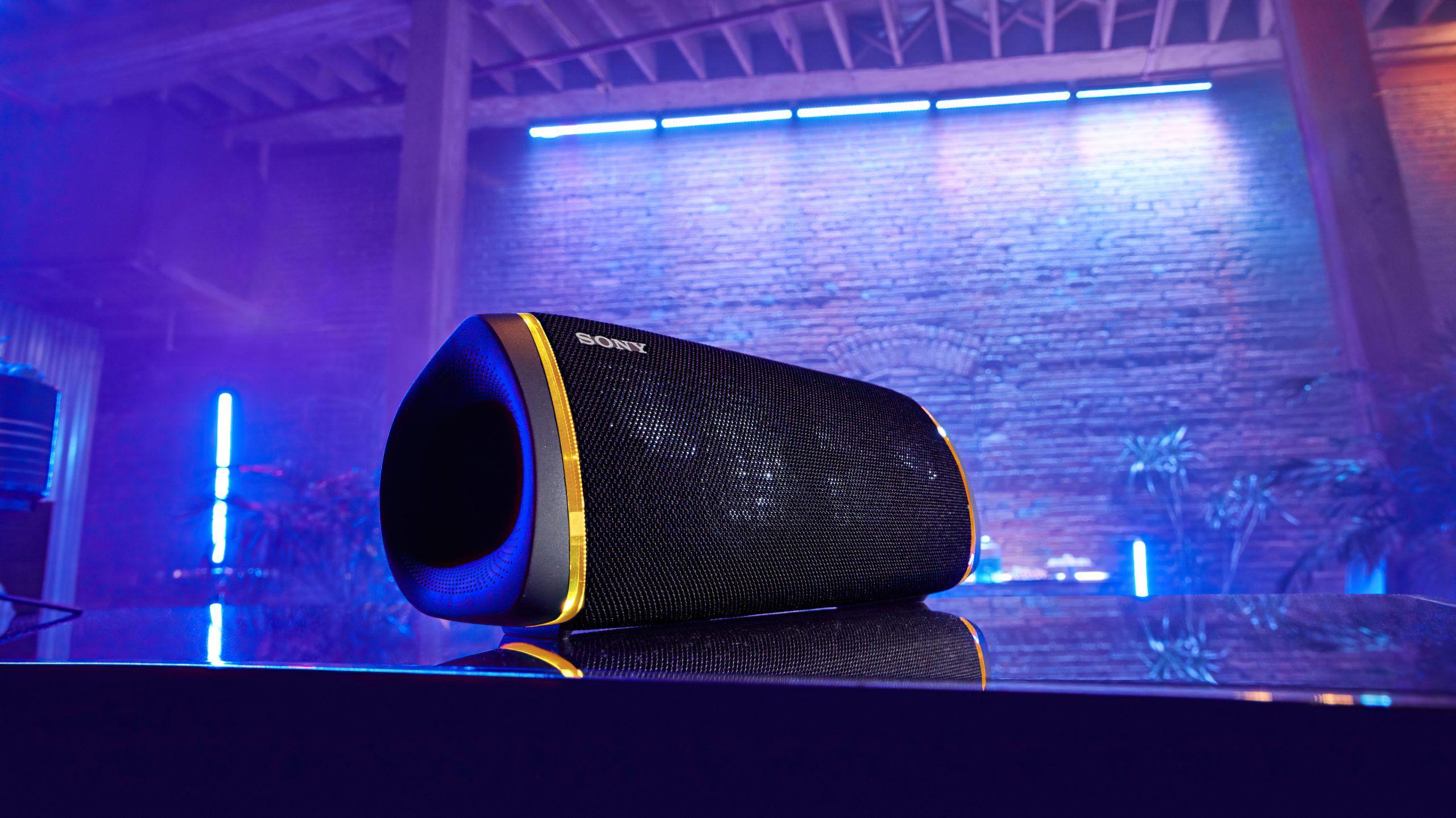
SRS-XB43: The biggest
If you do not like the compromise of having all the sound reproduced from two small full-tone elements, then you should consider the larger SRS-XB43. This is significantly larger and almost three times as heavy as the little brother XB33, and thus has better conditions for powerful sound with a larger dynamic range. But its advantage can also quickly become a disadvantage, in that it takes up a lot of space in the luggage – and it does not slip into an ordinary handbag. It is still within the limits of what I would call portable; after all, it is small compared to the Bose S1 Pro and the giant Soundbox – which are also considered portable speakers.
Connection
Android users can easily connect the speakers with NFC, ie you just place the phone next to the NFC logo on the speaker. iPhone users need to pair with the usual method of finding the speaker in the Bluetooth list on their phone.
The speakers can play in party mode, which means that the speakers are wirelessly connected and play the same music. You can also connect two in stereo, but then you must have the same speaker model. I only have one of each, and the XB33 and XB43 cannot be connected as a stereo pair. I would not recommend it anyway, as it is a point that the two sound the same.
It should be mentioned that the XB43 is the only one of the two with analog AUX input, should you need to connect something with cable.
Sony’s Extra Bass speakers have lights that flash in time with the music. If you want it. Photo: Sony
Flashing lights
Like all Extra Bass speakers, both the XB33 and XB43 have built-in party lights. You can change the color and rhythm of these in the Sony Music Center app, and fortunately they can also be turned off completely.
The sound of Extra Bass
The speakers are in Extra Bass sound mode by default, and although I normally prefer to disable all extra sound effects, the speakers sound too flat and dull without this. Especially the smallest X33 loses almost all bass, so keep Extra Bass on. Then it will be full and nice.
Both speakers have a rich and warm sound balance. It is also the intention, to get the most “party atmosphere” out of compact goals.
I definitely prefer the sound with Android mobile and the LDAC codec, as it opens up a good notch in the treble range. The sound image becomes more airy and resolved, where you can experience something trapped and tame with the usual AAC codec.
Sound settings in the app
If you have an iPhone or other sources that do not support LDAC, you can advantageously go into the sound settings in the app, and adjust the treble a few notches. I think the bass is a little bloated for my taste, so I pull this down a notch. If, on the other hand, I am in situations that include something extra good in the glass, it is more fun with the extra bass the speakers give straight out of the box. Even if it sounds a bit colored.
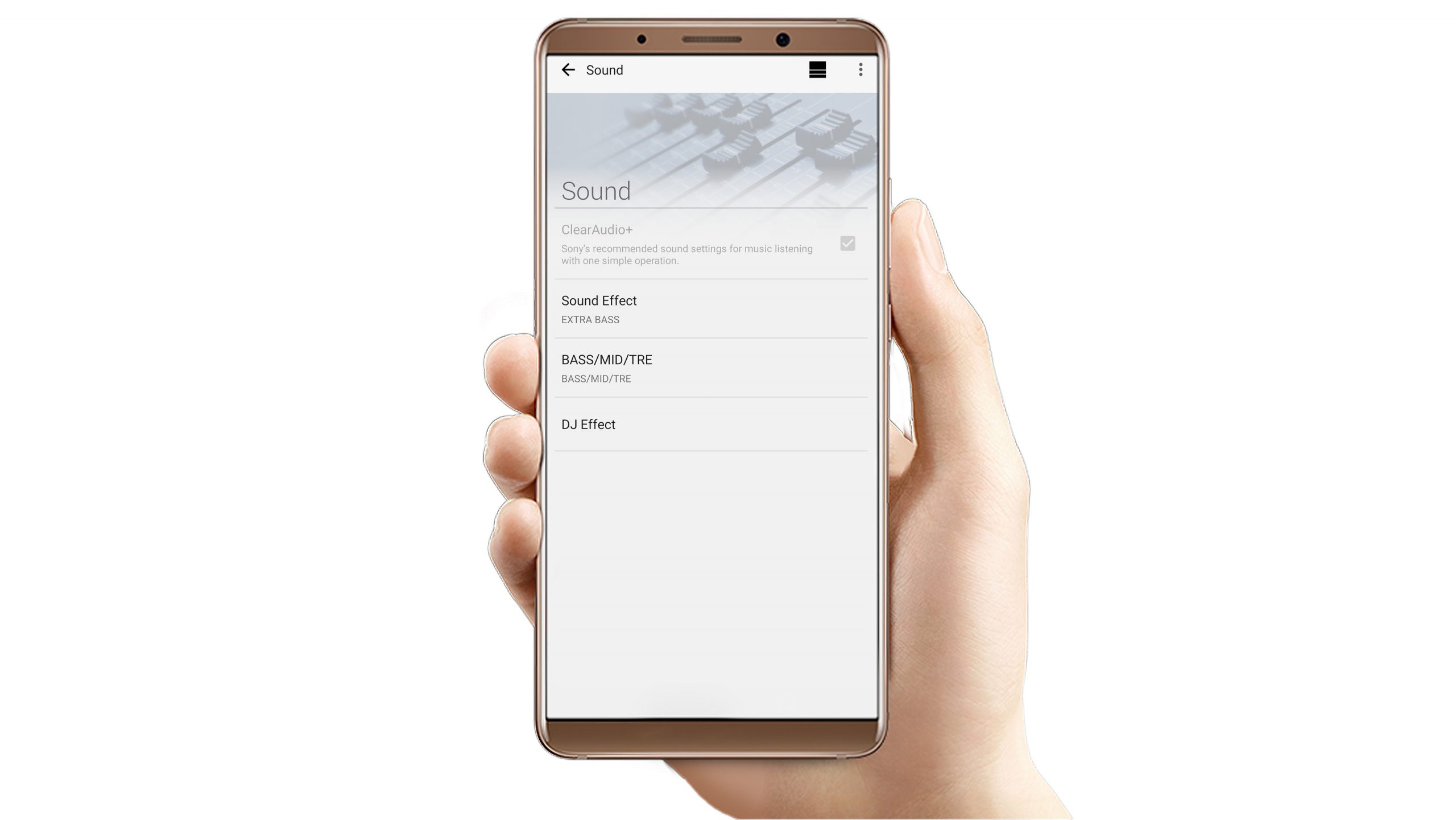
Exciting
I have to say I get excited by the loud sound. Especially from the smallest XB33, which sounds almost as full and good as the big XB43. The XB43 has significantly better dynamics when you pick up the sound, and it also has more extensive bass and a more distinct treble. But then it is also so much larger that it is impractical to take around. With its much smaller footprint, the SRS-XB33 is much more practical.
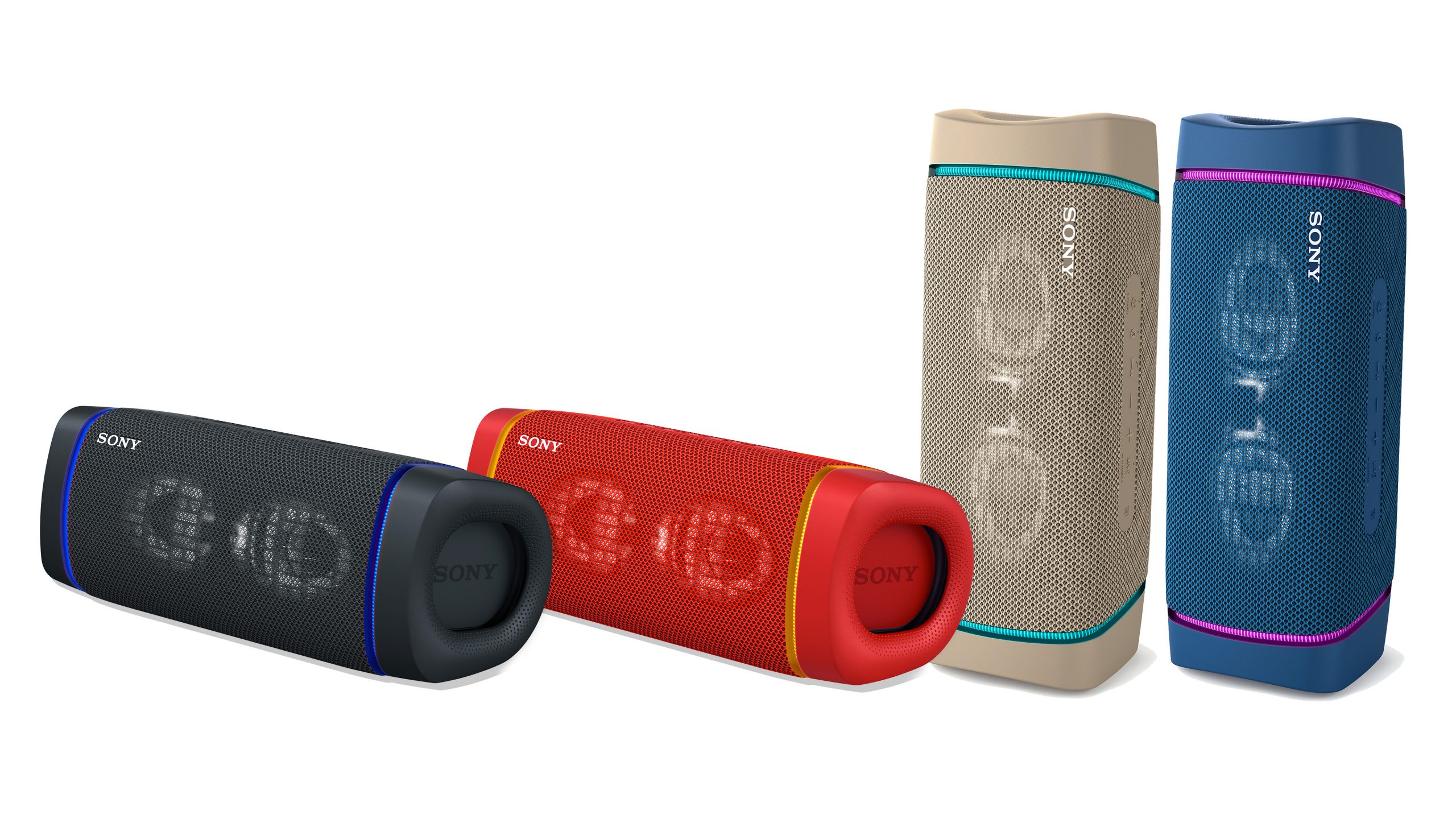
Competitors
In my ears, the XB33 is also better than the JBL Charge 4, and the voice reproduction is more open and clearer than with its predecessor XB32, which we also liked but which sounds a bit more nasal compared to the new one. The XB33 also separates instruments and voices better from each other. It is simply much better balanced than the XB32, which we also liked.
Both the medium-sized SRS-XB33 and the larger SRS-XB43 are similar in sound balance. If you want extra power then I can definitely recommend the SRS-XB43. As mentioned, it has significantly more profit in the entire frequency register and separates the tones even better from each other than little brother.
The XB43 does not exactly breathe the sound pressure sample JBL Boombox 2 in the neck, but then the price is well below half. Which means you can get two and connect them in stereo, and then it’s immediately sayonara to the Boombox. The stereo sound you get from two speakers placed a few meters apart totally overrides the sound from a single boomblaster. Sony will probably still have to look a bit for the sound from a pair of even bigger – and more expensive – Ultimate Ears Hyperboom. It sounds both bigger and clearer, with even better dynamics.
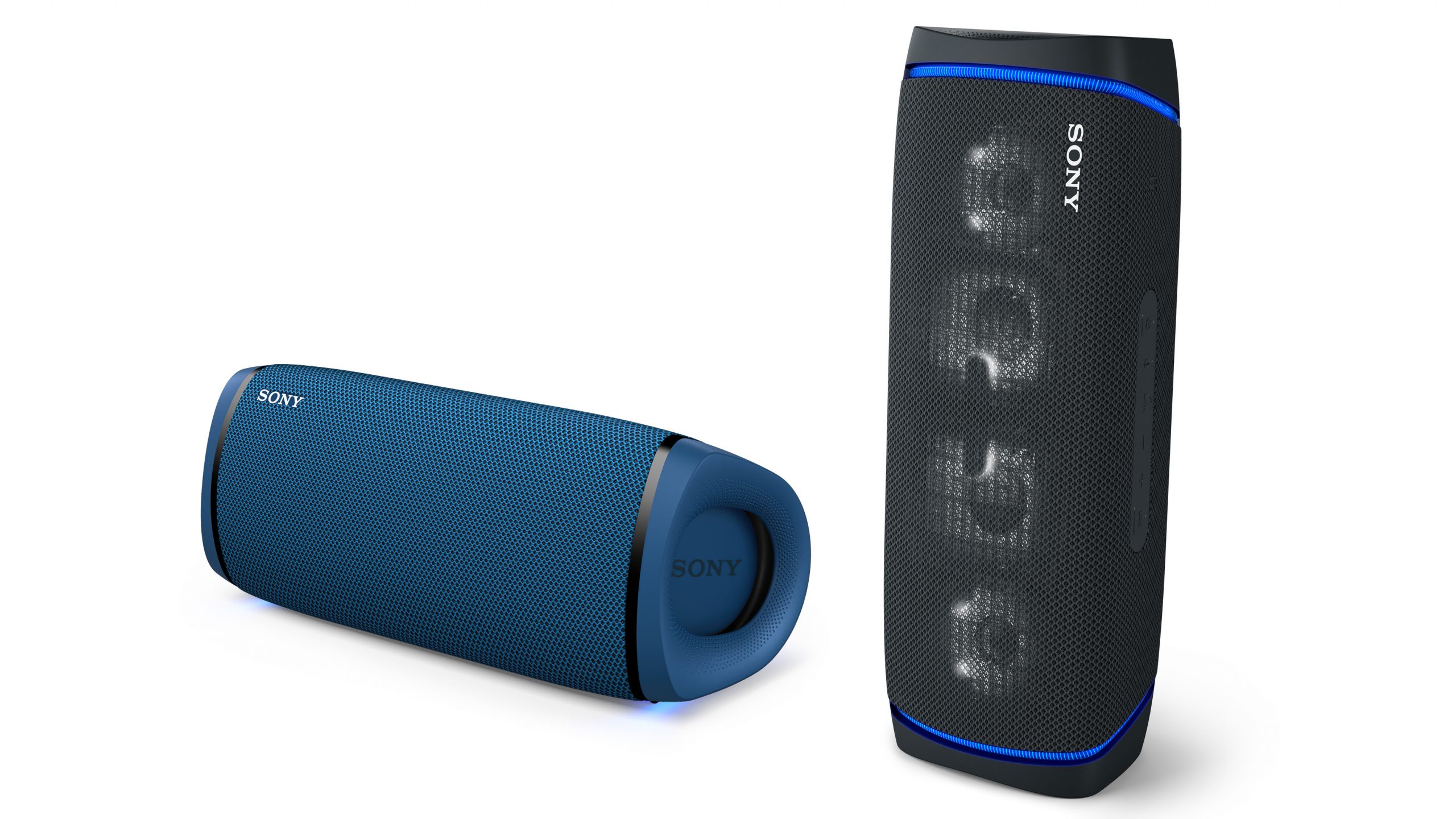
Conclusion
The SRS-XB33 and SRS-XB43 are living proof that Sony masters the art of wrapping impressively rich and good bass from compact and affordable portable speakers. Though, the largest XB43 is not super compact, but it still sounds even bigger than it looks. Most impressive, however, is the XB33, which with a far more practical size gives a lot of what the big brother XB43 has to offer. They can both play in party mode with other Extra Bass speakers, and two identical speakers can be linked in stereo.
Download the app to get the most out of the speakers, here you can make different sound settings and change the rhythm, pattern and color of the flashing lights. Or turn them off completely.
Both the XB33 and XB43 are good portable speakers for many occasions.

We think
The SRS-XB33 provides surprisingly rich and good sound for being so compact. The larger XB43 has even more of everything, and also cleaner voices and instruments. The SRS-XB33 sounds a bit flat when forced to play loud, and bass pressure is limited. The SRS-XB43 is too big for the handbag, and although it is more powerful, it is not the difference night and day.
169 €
Specifications
SRS-XB33
- Elements: 2 x full tone
- Frequency range:?
- Amplifier power: 2 x 8W
- Connections: Bluetooth 5.0 (NFC), USB (powerbank mode)
- Battery life: About 24 hours
- Dimensions: 24.6 x 9.7 x 10.6 cm
- Weight: 1.1 kg
- Other: Dust and waterproof (IP67), radiator basses, stereo pairing and party mode
- Price: 169
- Web: sony.com
SRS-XB43
- Elements: 2 x 20 mm treble, 2 x basses
- Frequency range:?
- Amplifier power: 2 x 16W
- Connections: Bluetooth 5.0 (NFC), AUX 3.5 mm, USB (powerbank mode)
- Battery life: About 24 hours
- Dimensions: 32.5 x 12.3 x 11.7 cm
- Weight: 2.95 kg
- Other: Dust and waterproof (IP67), radiator basses, stereo pairing and party mode
- Price: 249
- Web: sony.com
